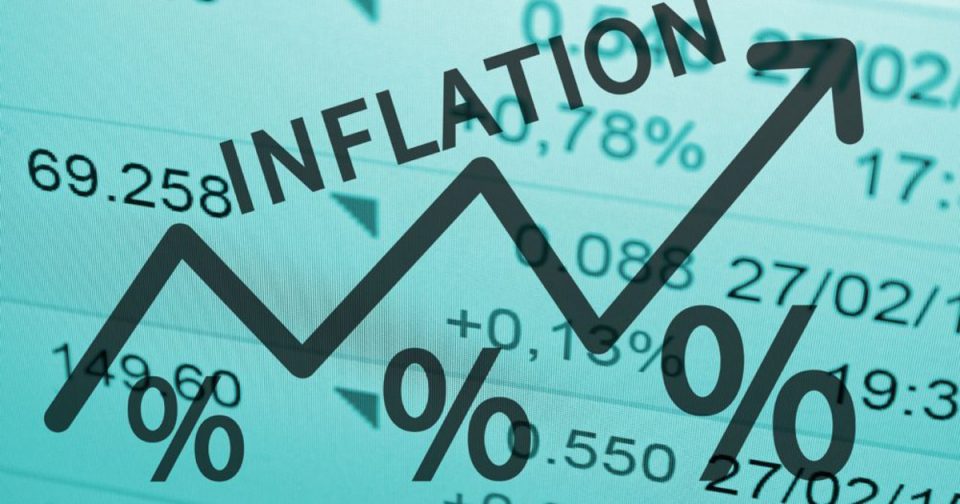The National Bureau of Statistics (NBS), says inflation rate increased in March by 0.82 per cent to 18.17 per cent from 17.33 per cent in February.
The NBS said this in its Consumer Price Index (CPI) report for March 2021, released on Thursday in Abuja.
The CPI measures the average change over time in prices of goods and services consumed by people for day-to-day living.
The report also said increases were recorded in all Classification of Individual Consumption by Purpose (COICOP) divisions that yielded the headline index.
“On month-on-month basis, the headline index increased by 1.56 per cent in March. This is 0.02 percentage points higher than the rate recorded in February (1.54 percent),” the report said.
The NBS said that the percentage change in the average composite CPI for the 12 months period ending in March over the average of the CPI for the previous 12 months period was 14.55 per cent.
This, it said, represented a 0.50 per cent increase over 14.05 per cent recorded in February.
According to the report, the urban inflation rate increased by 18.76 per cent (year-on-year) in March from 17.92 per cent recorded in February, while the rural inflation rate increased by 17.60 per cent in March from 16.77 per cent in February.
It added that on a month-on-month basis, the urban index rose by 1.60 per cent in March, up by 0.02 per cent compared to the rate recorded in February.
It however, said that the rural index also rose by 1.52 per cent in March, up by 0.02 per cent, compared to the 1.20 per cent rate recorded in February.
“The corresponding twelve-month year-on-year average percentage change for the urban index is 15.15 per cent in March.
“This is higher than 14.66 per cent reported in February, while the corresponding rural inflation rate in March is 13.99 per cent compared to 13.48 per cent recorded in February.”
The NBS said that composite food index rose by 22.95 per cent in March compared to 21.79 per cent in February.
It added that on month-on-month basis, the food sub-index increased by 1.90 per cent in March, up by 0.01 per cent from 1.89 per cent recorded in February.
It said that the rise in the food index was caused by increase in prices of bread and cereals, potatoes, yam and other tubers, meat, vegetables, fish, oils and fats and fruits.
The bureau said that ”All items less farm produce” or Core inflation, which excludes the prices of volatile agricultural produce stood at 12.67 per cent in March, up by 0.29 per cent when compared with 12.38 per cent recorded in February.
It added that on month-on-month basis, the core sub-index increased by 1.06 per cent in March, down by 0.15 per cent when compared with 1.21 per cent recorded in February.
However, the highest increase was recorded in prices of passenger transport by air, medical services, miscellaneous services relating to the dwelling, passenger transport by road, hospital services, pharmaceutical products and paramedical services.
Others were vehicle spare parts, dental services, motor cars, maintenance and repair of personal transport equipment and hairdressing salons and personal grooming establishments.
For state profile, the NBS said that in March, all items inflation on year on year basis was highest in Kogi at 24.51 per cent, Bauchi 22.24 per cent and Sokoto 20.70 per cent.
Also Imo at 16.08 per cent, Kwara 15.34 per cent and Cross River at 14.45 per cent recorded the slowest rise in headline year on year inflation.
On month on month basis however, in March, all items inflation was highest in Rivers at 2.62 per cent, Gombe at 2.14 per cent and Niger 2.12 per cent, while Zamfara at 0.60 per cent, Yobe 0.26 per cent and Kebbi at 0.45 per cent recorded the slowest rise in headline month on month.
For food inflation on a year on year basis, in March, it was highest in Kogi at 29.71 per cent, Sokoto 7.02 per cent and Ebonyi 26.59 per cent, while Abuja at 20.10 per cent, Kebbi 19.98 per cent and Bauchi at 18.61 per cent recorded the slowest rise in year on year inflation.
On month on month basis however, March food inflation was highest in Rivers at 3.52 per cent, Niger 2.92 per cent and Gombe 2.85 per cent.
Also Zamfara at 0.51 per cent recorded the slowest rise in month on month food inflation, with Yobe and Kebbi recording price deflation or negative inflation.




